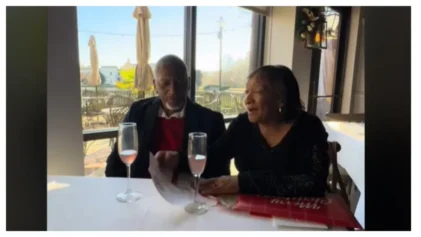The campaign of Republican presidential candidate Mitt Romney lashed at the Obama administration’s handling of a violent day at two American diplomatic posts in the volatile Middle East on Tuesday.
One of the attacks resulted in the death of the U.S. Ambassador to Libya, John Christopher Stevens, and three other Americans, although the names of the victims were not yet known when the Romney campaign issued a release that labeled the administration’s actions as “disgraceful.”
“I’m outraged by the attacks on American diplomatic missions in Libya and Egypt and by the death of an American consulate worker in Benghazi,” Romney said in the statement. “It’s disgraceful that the Obama Administration’s first response was not to condemn attacks on our diplomatic missions, but to sympathize with those who waged the attacks.”
The campaign had initially planned to hold off on a statement until after midnight – and the end of the eleventh anniversary of the September 11th terrorist attacks on America – but lifted the embargo an hour and a half early as the controversy flared over a series of attacks against the U.S. Embassy in Cairo and the American Consulate in Benghazi, Libya.
The two diplomatic outposts had been the site of violent protests on Tuesday evening, as fundamentalist mobs swarmed in rage over an anti-Muslim film made in the U.S. by a Jewish American. The yet-to-be-release film, which has been promoted in part by the Koran-burning preacher Terry Jones, supposedly projected the Prophet Muhammad in a harshly critical light.
Protesters scaled the wall the U.S. embassy in Cairo and burned an American flag on its grounds before replacing it with an Islamic banner. In Benghazi, a mob driven by the Islamist militant group Ansar al Sharia rampaged through the American consulate, firing at least one rocket-propelled grenade, killing Stevens and three other Americans.
The violence took a domestic political turn, in part thanks to a poorly-worded statement released early Tuesday by the staff of the Cairo embassy, which condemned the film and the “continuing efforts by misguided individuals to hurt the religious feelings of Muslims – as we condemn efforts to offend believers of all religions.”
The Romney campaign’s statement suggested that the Obama administration was capitulating to the wishes of an angry Muslim mob and somehow excusing the violence that resulted in the loss of American lives.
Bottom of Form
But the statement criticized by the Romney campaign was not released by the White House, but by the Cairo embassy itself.
The White House later disavowed the statement as not approved by Washington, according to a senior administration official.
Obama campaign spokesman Ben LaBolt took aim at the Romney campaign’s clumsy attempt to gain political mileage from the tragedy.
“We are shocked that, at a time when the United States of America is confronting the tragic death of one of our diplomatic officers in Libya, Governor Romney would choose to launch a political attack,” LaBolt said in a statement.
Secretary of State Hillary Clinton condemned the attack on the mission in Benghazi “in the strongest” terms, and added that while the U.S. “deplores” the denigration of religion depicted in the film, it would not tolerate such violent actions.
The Libyan government called the attack on the American Consulate a “cowardly act.”
The Muslim Brotherhood, the ruling Islamist party in Egypt, said on its Twitter page that that it “regrets the attacks on [the U.S. Embassy] by angry protesters, and we urge citizens to express their opinion peacefully.”


